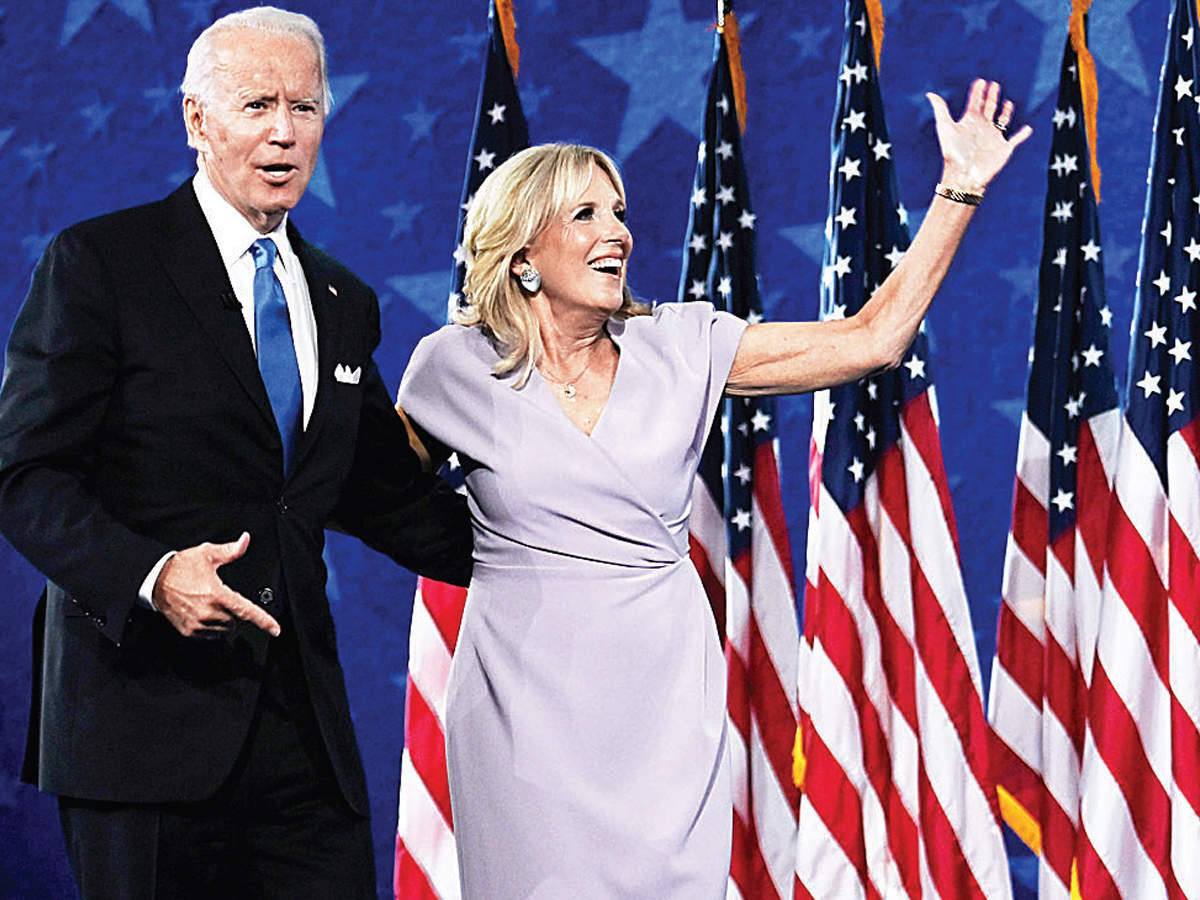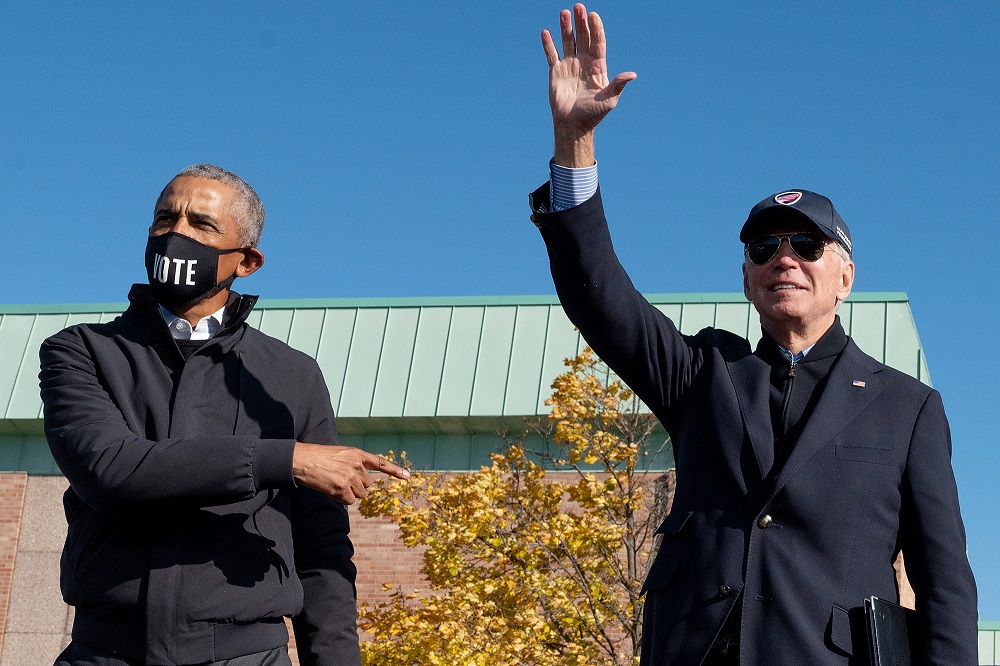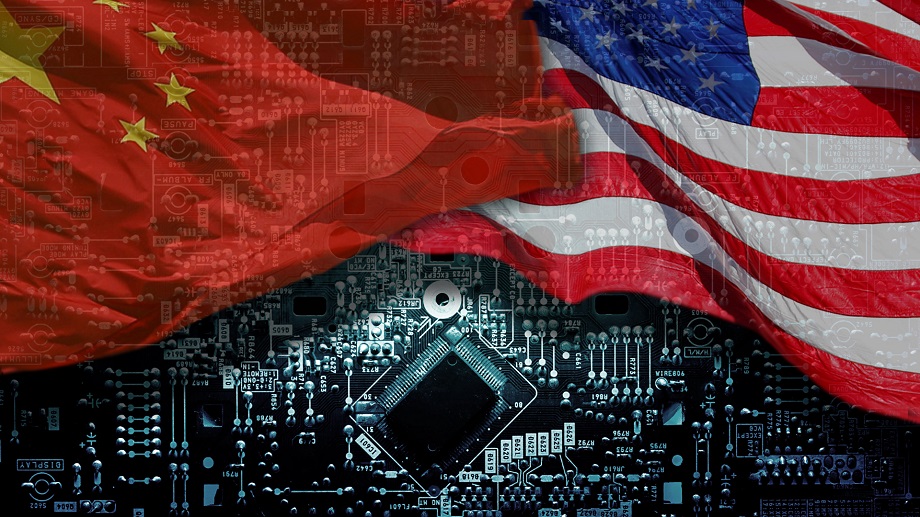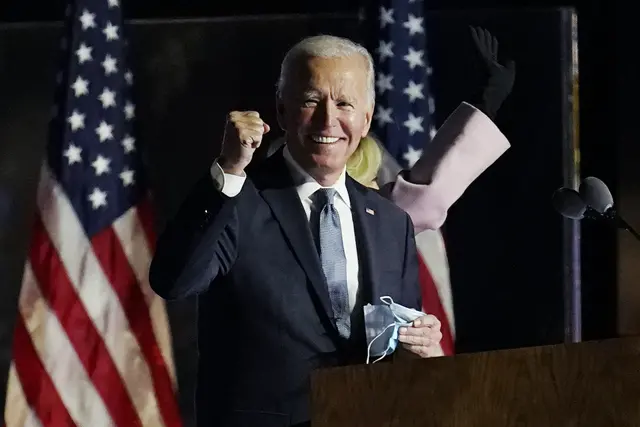By APD writer Alice
Joe Biden is believed to become the 46th US President and will take office earlynext year after he turns 78. Based on the statements during his election campaign, one can predict the policies of the US, especially the economic ones, in the next four years under the leadership of this new president.
The US, after a dramatic election, will face many problems: millions of people unemployed for a long time, public debt at a record high, a series of businesses going bankrupt, and collapse of many business models. More important, however, these issues reflect a contradiction difficult to be solved: while the left fosters an idea that the current economic model has failed and it is necessary to strengthen the role of state intervention to regulate the economy, many citizens are now skeptical of globalization and the government's ability to revive the economy when they even failed with the Covid-19 control. The results of the election also showed a divided US.
Based on Biden's statements in the campaign, it can be seen that he will neither lean on the left nor the right. For example, he would aim to move American capitalism in favor of the workers, not the rich. His economic top priority is to find a way to adopt a stimulus plan big enough to revive the economy but not at all costs. It means he will focus on green growth, increasing public spending and opening borders to skilled immigrants. At the same time, he will not seek to reverse the new protectionism trend of the US in recent years.

The strength of Biden is not economic policy. During his 36 years as a senator in the Congress, his interests were in the judicial system and foreign policy. He was closer to the middle class than the elite or the urban poor. He grew up and later represented the state of Delaware where large businesses create a main source of revenue.
Delaware is also home to many iconic businesses of the 20th century such as DuPont. That's why Biden has a tendency to like production and the old form of capitalism in which owners are like heads of family taking care of workers - as opposed to the image of high-tech or the sharing economy based on freelancers.
To move towards a "green" economy, infrastructure construction will target upgrading the electrical system and building charging stations for electric cars. Biden will also pour billions of dollars into research and development of renewable energy technologies and 5G networks to increase the US advantage in the competition with China. For technology companies, the revision of the competition law to limit the concentration of power on major technology firms may be postponed.

To increase budget revenue to fund social programmes, Biden will increase corporate tax from 21% to 28%, set a minimum tax rate for income from abroad, remove tax exemptions for real estate investors or investment funds. The personal income tax applied to those with an income of $400,000 or more will increase to 39.6% while the investment income tax on people with an income of $1 million or more will climb to the highest individualincome tax rate.
Biden could also use executive directives to reverse some of Trump's previous directives, such as lifting the ban on some immigrants and loosing visa rules for skilled people.
With China, he may be more polite than Trump. Unlike businessman Trump, Biden, as a veteran politician, will be more rational and predictable. He will certainly lift tariffs President Trump has imposed on Chinese goods but maintain the phase one trade deal because he expects China to expand US goods imports after its economy recovered rapidly from the impact of the COVID-19 pandemic.
Experts said that the room for US-China cooperation will be much wider after Biden takes office, as he respects international rules and can minimize risks and instability to bilateral relations to a certain extent.

There may be a change in bilateral relations during Biden's presidency. The US could strengthen cooperation with China in the field of climate change, particularly new energy development. There will also be an opportunity for partnerships between China and US technology companies, instead of banning advanced Chinese companies altogether.
Under the Biden era, the US will make concessions to heal relations with traditional allies such as Japan and Europe. Based on its stable relationship with Japan, the US will seek to expand its influence in Asia in the future. However, relations will not return to those under President Barack Obama for a short time.
Negotiating new trade agreements won't be Biden's priority. His policy will lean towards soft protection, bring supply chains to the US and apply policies to encourage the use of US goods.
Biden will increase taxes and spending moderately, prioritize domestic production and do not change foreign trade policy. This policy will benefit the middle class and low-paid workers whilethe wealthy will bear the burden of tax increases.
Regarding globalization, he will favor multilateralism and play a more active role in building rules in global organizations. He can promote the operation of the World Trade Organization (WTO)’s dispute settlement mechanism and pursue Trans-Pacific Partnership (TPP) renegotiation.
(ASIA PACIFIC DAILY)
 简体中文
简体中文

